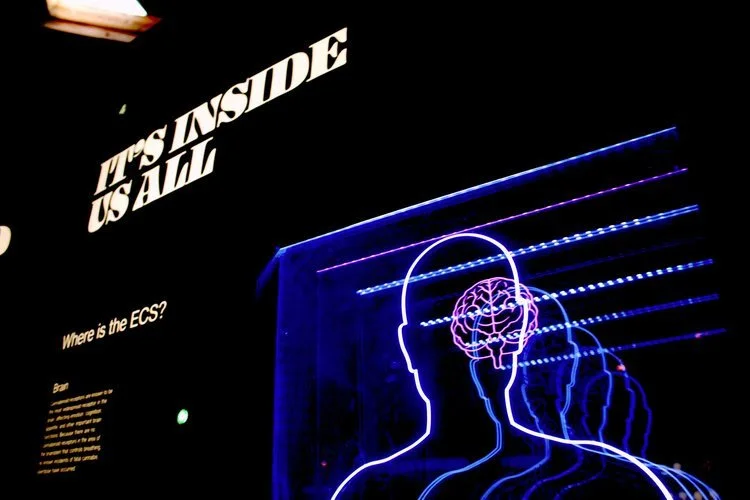“Informed” Consent and the Psychedelic Experience
I was scanning a few interesting articles this weekend, all trying to grapple with the idea of consent around psychedelic journeys. One of the most fundamental components of therapeutic or medicalized procedures is the requirement of “informed” consent. People need to be able to understand the potential risks, benefits, and alternatives available for any therapeutic intervention, so their consent is informed based on all available information. More so than the expectation of informed consent, creating a safe, transparent, and secure environment is imperative to building the therapeutic container, so the client and facilitator can show up authentically and vulnerably.
Informed consent in this arena ignorantly implies that the facilitator knows what may happen within the boundlessness and expansiveness of the psychedelic experience (more on this later). One of the gifts of psychedelics – expected or not - is breaking down and growing beyond the cognitive and logical prisons we develop due to our conditioned, i.e. traumatized, beliefs, behaviors, and language. But, this doesn’t apply to just the client(s), but the facilitator(s) as well. How can a facilitator, researcher, clinician, or healer offer consent if they haven’t traversed this terrain themselves? If they haven’t healed their shadow? Worked to break down the compartmentalization or fragmentation left by their own trauma, and endeavored back to wholeness? If there isn’t enough experience integrating and utilizing multiple frameworks to hold the work, and not just a scientific or medicalized one?
JAMA published an article discussing the “Essentials of Informed Consent.” They identified 7 components and challenges within the consent process: 1) the possibility of short- and long-term perceptual disturbances, 2) potential personality changes and altered metaphysical beliefs, 3) the limited role of reassuring physical touch, 4) the potential for patient abuse or coercion, 5) the role and risks of data collection, 6) relevant practitioner disclosures, and 7) interactive patient education and comprehension assessment.
“How can a facilitator, researcher, clinician, or healer consent if they haven’t traversed this terrain themselves?”
First off, I think the idea of consenting to the potential for abuse is disgusting. I know there are cases of exploitation and abuse, but someone who perpetuates abuse isn’t going to consent their client to it any more than a doctor or therapist is going to consent for their neglect. As a community we need to be talking about this and creating safe containers and qualified providers with ironclad principles, practices, and ethics. Some of the challenges of this consent I hinted to above: how do we start to consent people for these experiences when we are relying, possibly overly relying, on just one of many frameworks?
Most of these are what can be measured or predicted, but how do we account for the ineffable, awe, wonder, mysticism, and the unknown? All vital components of something that is perceived as transformative and sacred. Are psychedelics transformative and can we consent to them? Do we risk limiting the limitless by our own perceptions and experiences, or through the power of suggestion?
The answer is yes, sometimes. This is an important distinction, too, because if the expectation that psychedelic journeys are all transformative, what happens to the individual who cracks open and is left raw and vulnerable? They might now be able to hold onto the transformative and powerful nature of their journey yet. What about the individuals who have to come back for multiple sessions to peel back the layers of trauma and conditioned beliefs? They might not feel transformed, and in fact, may feel exhausted, challenged, or disappointed by the work. We cannot judge a painting by the first strokes applied to a canvas.
The forest of transformation may be lost on the trees of hardship. But who are we to define transformation, and who are we to predict, let alone simply tell people what they will experience? I’ve seen far too often expectations built up, hope seductively tantalized, and results over promised, only to see disappointment wash over the faces of clients who didn’t get what they expected.
“Who are we [facilitators'] to define transformation?”
Documentary films promising viewers a single psilocybin journey that will “fix” their OCD are left frustrated and doubting, not just the medicine(s), but themselves and their ability to heal if or when their journey doesn’t deliver immediate relief and complete transformation. Curious and diving deeper into the literature, I came across another article exploring the clinical and ethical implications of leveraging multiple frameworks to provide consent: neurobiological, psychological, and spiritual.
This brings it all home for me. How do we start to identify, train, and educate providers who are able to incorporate cross-disciplinary frameworks so that we hold space for the whole human, the whole experience? How can we start to embrace the unknown from a place of grounded humility, instead of arrogance and self-deception, that holds the psychedelic experience and the individual, couple, or group’s experience in non-ordinary states? This article explains beautifully, “[w]e suggest that interdisciplinary education may be necessary to improve communication between researchers, develop models that effectively incorporate multiple levels of analysis, and facilitate collaboration between professionals with diverse backgrounds in the implementation of psychedelic medicines.”
In this situation, they are suggesting that multiple people with diverse backgrounds may be required to adequately speak to the different models, but what if we could educate and train diverse practitioners who could speak to the sacred, the medicine and mysticism, the art and science of it all. This is the space that I long to occupy. A translator and explorer of healing concepts, integrating them all into a humanistic framework…one that allows for the neurobiological, psycho-emotional, and mystical/spiritual.
To wrap it all up – I think the consent process is important and must be informed. But, “informed” represents both a challenge and an opportunity. It doesn’t mean trying to explain everything that can happen in non-ordinary states, nor do I think it could, nor do I think it should be contained to a single framework or reduced to “what can be measured.” The opportunity allows for a more humanistic framework to guide how we talk about and explain what might happen during a psychedelic journey. One that allows for the sacred, the ineffable, and the unknown while still providing grounding, safety, and reassurance for the vulnerability and exposure encountered during a journey. And still, there is much work to be done to cull the predatory practices and people who look to psychedelics as a way to harm people, hold power over, and exploit this sacred space.
We cannot do this vitally necessary work when psychedelics are still relegated to the taboo, banned substances of the world. The world is moving forward, regardless the FDA or DEA’s permission. Information transparency is allowing consumers to read the groundbreaking works published by researchers and academic institutions, witness true bipartisan cooperation around aspects of Veteran mental health, and connect with various platforms where people can share their anecdotal experiences of hope and inspiration exploring psychedelics in safe containers. I know the excitement is fomenting, and that is not a reason to rush towards concepts like “legalization” or “decriminalization,” but as the war wages between government bureaucracy, oversight, and control versus civil disobedience, agency over health, and spiritual freedoms, we are just widening the divide instead of bridging our resources. Just as psychedelics can offer inspiration, hope, and healing, perhaps there is another opportunity, an invitation for connection, mutual respect, accepted influence, and true collaboration.
California Psilocybin Bill Fails Again… Disappointed Buuuuut… Not Surprised
As a facilitator based in Los Angeles, I would like to give my disimpassioned two cents about CA SB1012, the latest psychedelic bill, stalled (again) this past month. After Governor Gavin Newsom vetoed Senate Bill 58 (also introduced by Senator Scott Wiener) to decriminalize psychedelics last year based on a supposed “lack” of regulated treatment guidelines, it’s not totally surprising that we are seeing … not quite a total failure… but another speed bump.
CA SB1012 would have had a pathway to protect licensed individuals which would have been of course extremely advantageous for facilitators and practitioners who could provide proof and example of their ethical practice AND rightly disadvantageous for profiteers trying to sell “magic mushrooms” in candy containers on the boardwalks of Venice.
So what happened this time? Another claim that there is a lack of evidence. The LA Times report that, “The California State Assn. of Psychiatrists argued in a bill analysis that ‘the evidence to support the therapeutic use of psychedelics is not yet robust enough to justify widespread access.’” To be clear, there are many psychiatrists who are well versed in psychedelic studies, offering both contributory and critical input to the discourse. And, there is still a large majority of psychiatrists who have never studied psychedelic studies, never received education during their professional education and training, look as psychedelics as a threat to their business models, and rely on compliant patients taking psychotropics medicine for the duration of their life – sadly serving as an reliable annuity for the physicians income stream. I’ve spoken to practicing psychiatrists in reputable hospital settings who still think ketamine is “a fringe medicine with no evidence to support it's use.” For those of us actively working and researching in this field, we know that this statement is a bit ludicrous. I can’t keep up with the stream of study after study coming out of some of the country’s top academic institutions with results favoring and spotlighting psychedelics potential for healing as nothing less than groundbreaking for what could be the hundreds of thousands of people in this state suffering from PTSD, depression, anxiety, trauma…so on and so on. Not to mention, the historical literature, countless books, and promising smoke billowing from the fire of evidence being gathered through civil disobedience.
One only needs to google “psychedelic study” to come across any of the hundreds of articles from top-tier academic institutions like Johns Hopkins, Stanford, Mass General, or Berkeley. The evidence for psychedelics' potentiality is here. States all over the country have progressed while “bright blue” California is left deliberating over budget concerns and “lack of evidence.”
With an expanding homeless and veteran population like ours, it is at the very least disheartening to see such powerful medicines tangled in the frivolous throes of politics. Till then, we wait, we prepare, and we continue to share amongst ourselves the impressive, relevant and effective frameworks, evidence, and guidelines being developed to provide those in need with safe, trustworthy, and transparent care.
Here’s What I’m …
Reading:
The Anxious Generation by Jonathan Haidt
Watching:
Civil War on Amazon Prime
Listening to:
Divenire by Ludovico Einaudi
Working on:
Revisions to Draft 1 on Framework … stay tuned here!



